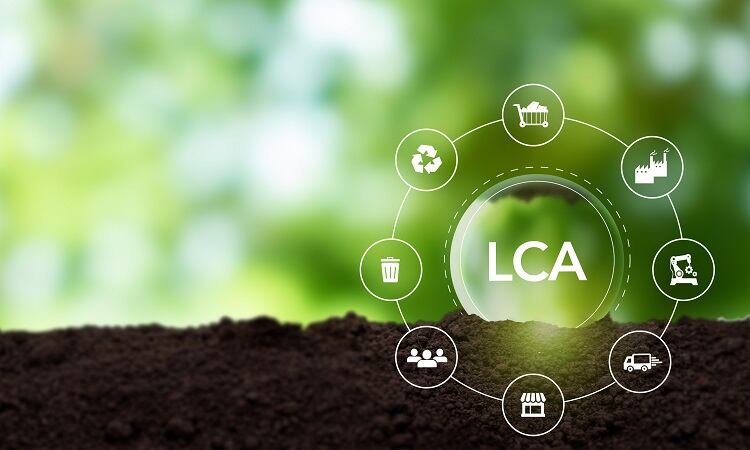A life cycle assessment (LCA) assesses the environmental aspects associated with a product over its life cycle. This encompasses the extraction of raw materials associated with the product, as well as the production and distribution of energy throughout its use, its potential reuse, and final disposal.
In food, this cradle-to-crave methodology is widely used to assess the environmental impacts of agricultural products. LCAs can also play a key role in helping businesses work towards more sustainable production, consumption and supply chain processes.
But since LCAs involve collating detailed data during each phase of the life cycle, they have traditionally been pricey and time-consuming to perform. “Until recently, conducting a comprehensive LCA for farm and food products was a costly and labour-intensive process that often stretched the resources of companies dealing with hundreds or even thousands of product variations,” explained David Nickell, VP Sustainability & Business Solutions at DSM-Firmenich, Animal Nutrition & Health.
To reduce these barriers, the ingredients major has partnered with software-as-a-service company Sustained to deliver product-level LCAs of consumer food products containing animal proteins at scale.
A ‘ground-up’ approach for egg, meat, milk and fish products
The tie-up leverages DSM-Firmenich’s Sustell service for capturing farm-level specific emissions data for eggs, meat, milk, and fish. By collaborating with Sustained’s platform, data management across the entire food supply chain is simplified. This makes it more accessible and manageable at a large scale, Nickell told FoodNavigator. “The main goal is to support the farm and food industry to achieve a genuine transformation in the sustainability of our food system.”
The partnership will create product-level LCAs with a ‘ground-up’ approach, we were told. The Sustell platform captures detailed animal protein LCA impacts at the farm-level, using feed and farm data and LCA calculation methodologies. These data are then relayed to the Sustained platform for the final LCA analysis of the food product at SKU level.
“The combined platforms enable companies to continually measure and evaluate the value chain impacts of each product, based on specific farming conditions and food manufacturing processes thereby delivering credible, accurate environmental footprints of food products.”
As to why the service is available for products containing animal products, the ingredients supplier explained that’s where its specialisation lies. In many of these foods, most of the environmental footprint is related to the animal protein component and to a lesser extent to other ingredients and packaging.
“To effectively address the environmental impact of these animal protein products, we focus on the key areas where the majority of the footprint and potential for footprint reductions exist, namely, in the feed and farm management practices.”
While DSM-Firmenich does not offer animal feed itself, it does supply animal nutrition ingredients (premixes and feed additives) and services. And up to 80% of a farm’s emissions are related to nutrition – particularly the animal feed, its composition, and its consumption by the animal.
Growing demand for environmental footprint data
DSM-Firmenich has observed demand for LCA studies since at least 2021, when it started offerings its customers – from producers/farmers through to CPGs and retailers – insights into the environmental footprint of animal products.
Demand is also growing across the EU to disclose environmental footprints as part of regulatory proposals, which continue to evolve, the DSM-Firmenich VP told this publication. The new partnership will help the food value chain to adapt and product credible reports to comply with EU regulations, he continued.
Assessing and communicating environmental impacts can also make for good business, given that 70% of consumers now consider sustainability a primary driver in purchasing decisions – creating a ‘pressing’ need for transparent and reliable data on sustainability across the value chain. “It follows that producers and retailers are keen to assess and communicate the environmental impact of their products.”
In so doing, businesses are also helping build a competitive environment within environmental footprint reporting. The ‘race to the top’ on sustainability creates a ‘win win’ across the value chain, explained Nickell.
“Consumers are able to make more informed purchasing decisions, companies can meet their regulatory reporting requirements and farmers can improve their operations and unlock additional value while becoming more sustainable.”
From assessment to reduction
A growing number of food businesses are setting net zero ambitions in line with, or ahead of, the EU’s goal of net zero greenhouse gas emissions by 2050. Measuring the baseline environmental footprint of a product is an important initial step, but for companies with sustainability goals, reductions must follow.
In many cases, customers and the value chain want to establish science-based roadmaps of emissions reduction to meet their sustainability commitments, explained Nickell, who added that Sustell can help.
The platform enables customers to achieve their reduction goals by making it possible to run multiple intervention scenarios to the baseline footprint, thereby determining which technology and interventions are best suited to achieve the improvement targets.




